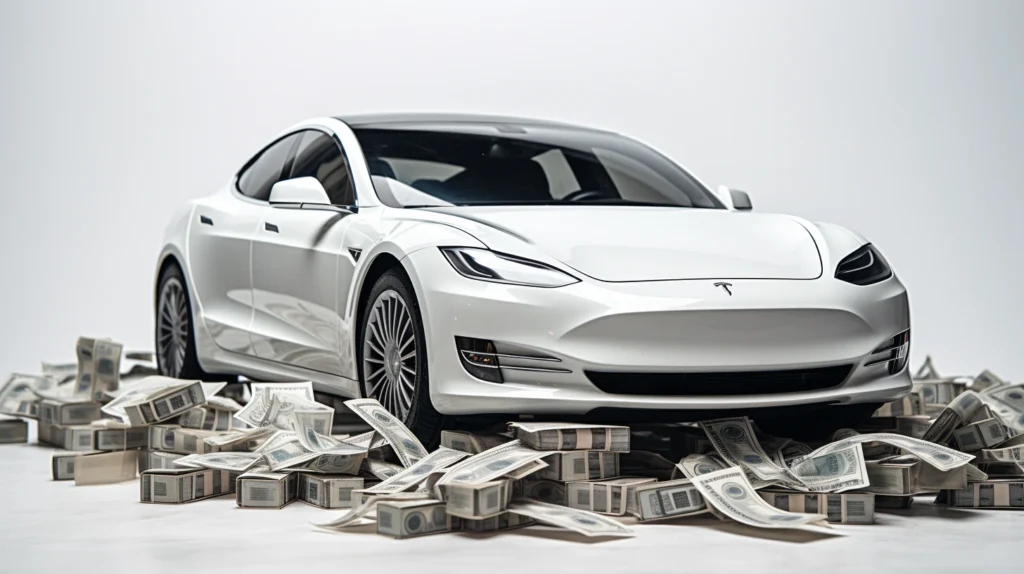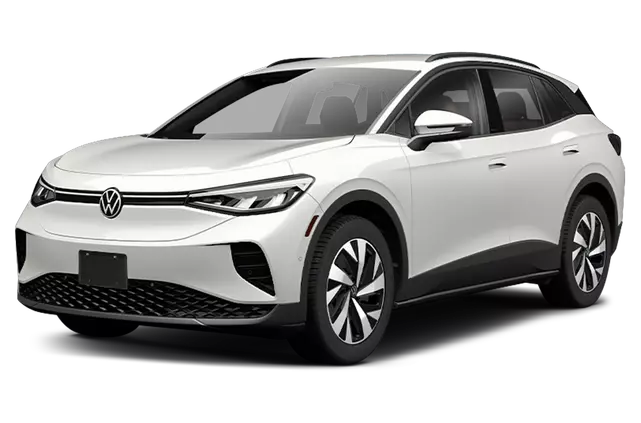As eco-conscious individuals strive to minimize their carbon footprint, the demand for electric vehicles (EVs) has been steadily rising. Consequently, many car owners are now pondering the potential disparity in insurance costs between EVs and conventional gasoline-powered cars.
In this blog post, we aim to address this inquiry and provide insights into the insurance expenses associated with electric vehicles.
By delving into this topic, you’ll gain a better understanding of the financial implications and be better equipped to choose a car that aligns with both your budget and lifestyle.
Cost of Insuring an Electric Vehicle
For the most popular electric cars, the annual insurance cost varied between $2,152 and $4,725 on average. The Hyundai Kona crossover SUV stands out as the least expensive electric car to insure, while the Porsche Taycan, an electric sports car, is the most costly option.
Factors that Increase/Decrease Insurance Premiums
1. Car Make and Model
EVs typically cost more to insure (as with other cars) due to their expensive parts.
2. Driver Profile
Young or inexperienced drivers may find it harder to get affordable insurance for electric cars as insurers tend to see them as a higher risk.
3. Location
Where you live will also have an impact on your insurance premiums. Generally, cities with higher populations are more expensive for car insurance.
4. Driving Record
Drivers with a clean record may get lower premiums than those with multiple violations or tickets on their record.
5. Safety Features
Electric cars come with many advanced safety features that can help reduce the cost of insurance. Autonomous emergency braking and lane-keeping systems can be especially helpful in this regard.
6. Deductible Amounts
The deductible is the amount you pay out of pocket when you file a claim before your insurer covers the rest of the repair costs. Higher deductibles equate to lower monthly premiums, but could result in larger out-of-pocket payments if you need to file a claim.
7. Coverage Amounts
In general, the higher the coverage amounts, the more expensive your premiums will be. However, it’s important to make sure that your coverage limits meet state minimums and adequately protect you in case of an accident.
8. Discounts
There are many discounts available for car insurance, including those for bundling policies together or having multiple cars on one policy. Insurers may also offer discounts based on profession or good driving habits. Be sure to ask about any potential discounts when shopping for car insurance so you can get the best rates possible.
Electric cars come with unique considerations when it comes to car insurance. Although they may cost more to insure initially, the long-term savings on fuel and maintenance can help offset the upfront costs.
Comparison of Insurance Rates for EVs and Gas Cars
1. Hyundai Kona: $2,152 (EV), $2,633 (gas)
This crossover SUV is the least expensive electric car to insure and offers savings of about $481 annually compared with a gasoline-powered model.
2. Nissan Leaf: $2,822 (EV), $3,350 (gas)
The Nissan Leaf is an affordable electric hatchback that has lower insurance premiums than its gas-powered counterpart when comparing average rates across states.
3. Tesla Model 3: $4,157 (EV), $5,390 (gas)
The Tesla Model 3 is one of the most popular EVs on the market and it comes with higher insurance rates than a traditional gas car. On average, it costs about $1,233 more per year to insure.
4. Porsche Taycan: $4,725 (EV), $5,390 (gas)
The luxurious Porsche Taycan is the most expensive electric vehicle to insure at an average cost of $4,725 per year. It’s slightly more expensive than a comparable gas-powered model but offers many additional benefits, such as increased efficiency and lower maintenance costs.
5. Chevrolet Bolt: $3,209 (EV), $4,223 (gas)
The Chevy Bolt is a popular electric hatchback that can save you money on insurance when compared to a gas-powered car. On average, the EV model costs $1,014 less per year to insure than its gasoline counterpart.
Advantages of Insuring an Electric Vehicle
1. Electric cars typically have lower insurance premiums than gas-powered vehicles. Also, with the advent of more advanced safety features on electric vehicles like autonomous emergency braking systems, insurers are offering more discounts for EV owners.
2. Electric cars don’t have to visit the mechanics as often as gas-powered ones since they have fewer parts and simpler engines. This means less expensive maintenance costs overall.
3. With no need for oil changes or tune-ups, you save money every year on servicing costs associated with owning a conventional car.
4. EVs come with lower emissions compared to gasoline-powered cars, making them an excellent choice for eco-conscious drivers who want to reduce their carbon footprint while saving money on fuel expenses too!
5. Many states and local governments offer incentives and incentives for electric vehicle owners, including discounts on car insurance.
6. Electric cars offer a smoother and quieter ride compared to gas-powered models, making it more enjoyable for drivers.
7. EVs have fewer moving parts, so there’s less of a chance of something breaking down and needing to be repaired or replaced at an expensive cost.
8. With lower fuel costs (since electricity is cheaper than gasoline), you can save money over time by owning an electric car instead of a gas-powered one.
9. The regenerative braking feature found in many EV models helps the battery recharge when you brake, which further reduces your need to visit the mechanic for repairs or replacements as often as with other cars.
10. EVs come with tax credits and incentives from the federal government that can help reduce the overall cost of ownership.
Ways to Reduce Your Insurance Costs on an EV
1. Compare insurance rates from different providers before committing to a policy.
2. Shop around for discounts based on vehicle type, safety features, and driving record.
3. Consider raising your deductible amount if you can afford it, as it may reduce your premiums significantly.
4. Take driver’s education courses or defensive driving classes to demonstrate that you are a responsible driver and qualify for lower rates.
5. Ask about bundling policies if you have multiple cars or other types of insurance policies with the same provider for additional savings.
6. Look into loyalty programs offered by insurers that reward customers who stay with the company over time with more discounts and benefits.
7. Opt for higher coverage limits if you can afford them, as this will give you added protection in case of an accident.
8. Utilize usage-based insurance (UBI) programs to get discounts based on your driving habits and the amount of time spent on the road.
Tips For Insuring An Electric Vehicle
1. Compare insurance rates from different providers before committing to a policy.
2. Shop around for discounts based on vehicle type, safety features, and driving record.
3. Consider raising your deductible amount if you can afford it, as it may reduce your premiums significantly.
4. Take driver’s education courses or defensive driving classes to demonstrate that you are a responsible driver and qualify for lower rates.
5. Ask about bundling policies if you have multiple cars or other types of insurance policies with the same provider for additional savings.
6. Look into loyalty programs offered by insurers that reward customers who stay with the company over time with more discounts and benefits.
7. Opt for higher coverage limits if you can afford them, as this will give you added protection in case of an accident.
8. Utilize usage-based insurance (UBI) programs to get discounts based on your driving habits and the amount of time spent on the road.
9. Consider getting a multi-vehicle discount if you have multiple cars insured with the same company.
10. Choose an insurer that offers competitive prices for both EVs and traditional gas-powered vehicles to ensure that you’re getting the best deal possible for your car insurance needs.
FAQs
What factors contribute to higher insurance costs for electric vehicles?
Several factors contribute to higher insurance costs for EVs. These include the higher cost of EVs compared to conventional vehicles, the expensive technology and components used in EVs, and the specialized training and equipment required for repairs.
Additionally, the limited availability of qualified repair shops and higher repair costs for EVs can also influence insurance premiums.
Are there any factors that could lower insurance costs for electric vehicles?
Yes, there are factors that could potentially lower insurance costs for EVs. Many insurance providers offer discounts for EV owners, as they are often seen as more responsible and environmentally conscious drivers.
Also EVs tend to have lower maintenance costs and can be cheaper to fuel, which can be factors considered by insurers when determining premiums.
Do insurance companies offer specific policies for electric vehicles?
Some insurance companies may offer specific policies tailored for electric vehicles. These policies may include coverage for specialized components like batteries and charging equipment.
However, not all insurers offer dedicated EV policies, so it’s essential to research and compare different insurance providers to find the most suitable coverage for your electric vehicle.
Are electric vehicles more expensive to insure compared to traditional gasoline-powered vehicles?
Generally, insuring electric vehicles (EVs) can be slightly more expensive than insuring traditional gasoline-powered vehicles. The primary reason for this is that EVs tend to have higher purchase prices, which means the cost of repairs or replacement parts can be more expensive.
Are there any government incentives that can help reduce insurance costs for electric vehicles?
In some regions or countries, there may be government incentives or programs that aim to reduce the cost of owning and insuring electric vehicles. These incentives could include subsidies, tax credits, or reduced insurance rates specifically for EVs. It’s advisable to check with local government authorities or relevant agencies to determine if any such incentives are available in your area.
How can I find affordable insurance for my electric vehicle?
To find affordable insurance for your electric vehicle, it’s recommended to shop around and compare quotes from different insurance providers. Make sure to provide accurate information about your vehicle and driving history to receive accurate quotes.
Conclusion
Electric vehicles can generally be more expensive to insure than traditional gasoline-powered cars due to higher purchase prices and specialized repair costs. However, there are ways to save on insurance costs for EVs, such as taking advantage of discounts offered by some insurers and researching government incentives.
Ultimately, the best way to find affordable insurance for your EV is to shop around and compare quotes from different providers.


